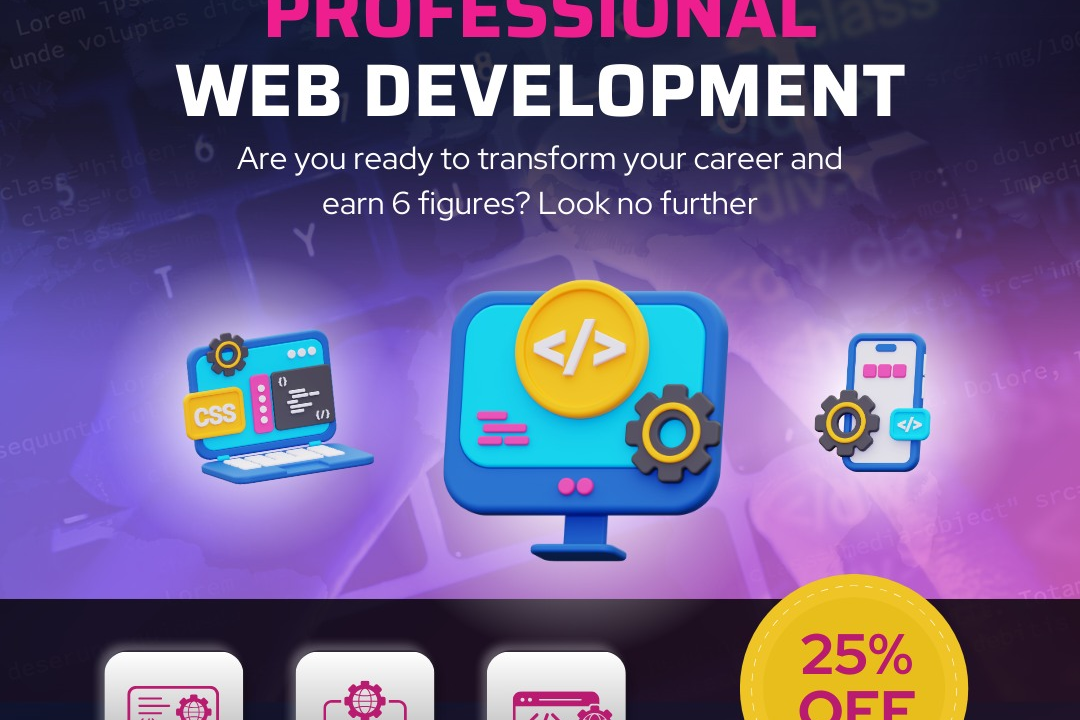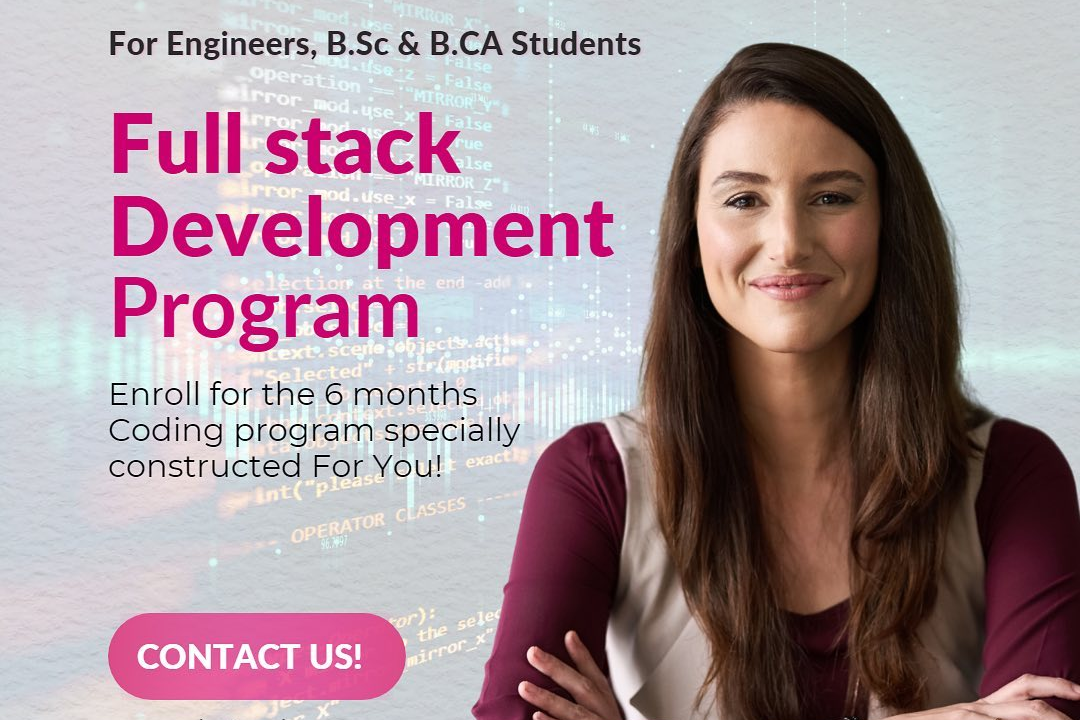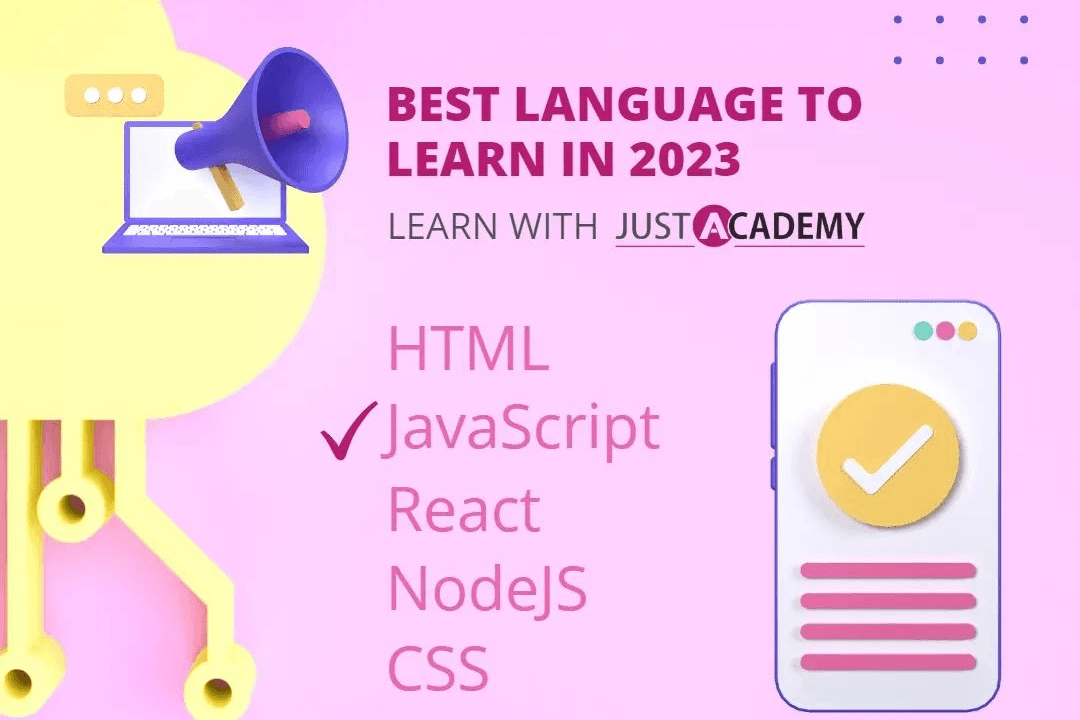Laravel Interviews Questions
Essential Laravel Interview Questions for 2023 Candidates
Laravel Interviews Questions
Laravel interview questions are crucial for both candidates and employers in the tech industry, as they help assess a candidate's proficiency in one of the most popular PHP frameworks used for web development. These questions not only test technical knowledge of Laravel’s features, such as routing, middleware, and Eloquent ORM but also gauge problem-solving skills and practical experience with real-time projects. By preparing for these interviews, candidates can demonstrate their expertise, adaptability, and understanding of best practices in modern web development, ensuring they are well-equipped to tackle challenges in dynamic work environments. For employers, well-structured interview questions can help identify strong candidates who can contribute effectively to their projects, ultimately leading to higher-quality outcomes and business success.
To Download Our Brochure: https://www.justacademy.co/download-brochure-for-free
Message us for more information: +91 9987184296
Here are 15 essential Laravel interview questions along with concise answers:
1 - What is Laravel?
Laravel is a popular open source PHP web application framework designed for building robust and scalable web applications. It follows the MVC (Model View Controller) architectural pattern, providing an elegant syntax and tools aimed at easing common tasks involved in web development.
2) What are routes in Laravel?
Routes in Laravel define the paths or URLs that users can access in a web application. They are defined in the `web.php` file and map specific URLs to corresponding controller actions, allowing developers to control the application's flow.
3) What is Eloquent ORM?
Eloquent ORM (Object Relational Mapping) is Laravel's built in ActiveRecord implementation, enabling developers to interact with their database using object oriented syntax. It simplifies database operations by allowing CRUD (Create, Read, Update, Delete) operations through PHP classes instead of SQL queries.
4) What are migrations in Laravel?
Migrations in Laravel are version controlled scripts that help manage database schema changes. They allow developers to create, modify, and share database structures easily, ensuring that all team members maintain consistent database setups across different environments.
5) Explain middleware in Laravel.
Middleware in Laravel acts as a bridge between a request and a response. It provides a way to filter HTTP requests entering your application, offering functionalities such as authentication, logging, and CORS (Cross Origin Resource Sharing) management before reaching the designated route.
6) How can you handle validation in Laravel?
Laravel provides a built in validation service that allows developers to validate user input easily. Using the `validate` method on request objects or defining validation rules in Form Request classes ensures that data conforms to specified criteria before it is processed or saved.
7) What are service providers in Laravel?
Service providers serve as the central place for configuring and bootstrapping various services and components in a Laravel application. They are responsible for binding classes and functionality into the application’s service container, enhancing modularity and reusability.
8) Define the concept of controllers in Laravel.
Controllers in Laravel serve as the intermediary between the model and the view. They handle incoming HTTP requests, interact with the model to retrieve data, and pass data to views for rendering, promoting a clear separation of concerns within the application.
9) What is dependency injection in Laravel?
Dependency injection in Laravel is a design pattern used to inject dependencies into a class rather than hard coding them, which enhances code modularity and testability. Laravel’s service container automatically resolves these dependencies, making the code cleaner and more maintainable.
10) What are events and listeners in Laravel?
Events and listeners in Laravel provide a way to implement the observer pattern, enabling developers to react to certain actions within an application. Events are fired when specific actions occur, while listeners react to those events, allowing for decoupled and organized code execution.
11 - What does the term ‘facade’ mean in Laravel?
Facades in Laravel are a feature that provides a simple interface to complex classes in the service container. They allow developers to access underlying classes through a static like interface, making the syntax clean and intuitive while still adhering to great design principles.
12) How can you use Laravel for API development?
Laravel provides robust tools for API development, including built in authentication via Passport or Sanctum, support for JSON output, and resource controllers that simplify the process of creating RESTful APIs. Middleware can also be applied to handle CORS and rate limiting.
13) What are queues in Laravel?
Queues in Laravel allow developers to defer the processing of time consuming tasks, such as sending emails or generating reports, to be executed in the background. This enhances application performance by freeing up resources for immediate user interactions while still processing heavy tasks asynchronously.
14) Explain the concept of Blade templating engine.
Blade is Laravel's built in templating engine that enables developers to create dynamic views with a simple syntax. It supports template inheritance, sections, and various control structures, allowing for cleaner and more maintainable HTML code within the application.
15) What is the significance of the .env file in Laravel?
The `.env` file in Laravel is used to store environment specific configuration variables, such as database credentials, API keys, and application settings. It promotes a secure and flexible way to manage configurations without hard coding sensitive information directly into the application codebase.
These questions and answers cover various aspects of Laravel, demonstrating both foundational and advanced concepts that are essential for any developer in the framework.
Here are additional Laravel interview questions with succinct answers to further enhance your preparation:
16) What is the purpose of the Laravel service container?
The Laravel service container is a powerful tool for managing class dependencies and performing dependency injection. It enables developers to bind classes or interfaces to their implementations, facilitating easy resolution of dependencies throughout the application.
17) Explain the concept of policies in Laravel.
Policies in Laravel are a way to encapsulate authorization logic around specific models or resources. They provide methods that determine if a user can perform a given action on a resource, streamlining the authorization process and keeping the code organized.
18) What is Laravel's task scheduling feature?
Laravel’s task scheduling feature allows developers to define scheduled tasks in a fluent, expressive manner using the `schedule` method within the `App\Console\Kernel` class. This simplifies the creation of cron like tasks without having to manage cron jobs manually.
19) What are unique constraints, and how are they implemented in Laravel?
Unique constraints ensure that a column's value is unique across all records in a database table. In Laravel, you can implement unique constraints in migrations using the `unique` method when defining the column or by applying validation rules in the form requests.
20) What are resource controllers in Laravel?
Resource controllers in Laravel provide a way to handle all CRUD operations (Create, Read, Update, Delete) for a resource via predefined methods in a single controller class. By following RESTful conventions, they streamline the development of resource oriented routes.
21 - Explain how to create custom validation rules in Laravel.
Custom validation rules in Laravel can be created by implementing the `Rule` interface or using the `make` method in a form request. This allows developers to define specific validation logic that is unique to their application requirements.
22) What is the Laravel queue system?
The Laravel queue system provides an efficient way to handle background processing by allowing tasks to be pushed onto a queue and processed asynchronously. This improves application performance and user experience by ensuring that resource intensive operations do not block user interactions.
23) How does Laravel's form validation work?
Laravel’s form validation can be achieved using the `validate` method or Form Request classes, which define validation rules. On validation failure, Laravel automatically redirects users back to the previous location with error messages, enhancing user experience.
24) What is the role of the `config` directory in Laravel?
The `config` directory in Laravel contains configuration files for various aspects of the application, such as database connections, mail services, and caching settings. These files are organized in a structured way, promoting easy management of application configuration.
25) How can you implement localization in Laravel?
Localization in Laravel allows applications to support multiple languages. This is achieved through the `lang` directory, where language files are stored. Developers can use the `trans` or `__` helper functions to retrieve translated strings based on the user's locale.
26) What is a Laravel package, and how can you create one?
A Laravel package is a set of reusable code that can be added to a Laravel application to extend its functionality. To create a package, developers can use the Artisan command `php artisan make:package` or manually create a folder structure and register the package in the `composer.json` file.
27) What is CSRF protection in Laravel?
CSRF (Cross Site Request Forgery) protection in Laravel helps prevent unauthorized commands from being transmitted from a user that the web application trusts. Laravel automatically adds verification tokens to forms, which must match the user's session token to be considered valid.
28) What is the difference between `GET` and `POST` requests in Laravel?
`GET` requests are used to retrieve data from the server and can be cached, while `POST` requests are used to send data to the server, typically for data creation or updates, and should not be cached. Laravel provides methods to handle both request types effectively.
29) How do database seeding and factories work in Laravel?
Database seeding allows developers to populate the database with sample data for testing and development. Factories are used to define how a model’s data should be generated, enabling seeders to create multiple records using the factory methods in an efficient manner.
30) What are the benefits of using Laravel Mix?
Laravel Mix is a fluent API for defining Webpack build steps for your Laravel applications, simplifying the process of compiling CSS and JavaScript assets. It provides an easy interface to handle tasks such as versioning, minification, and asset bundling without requiring extensive Webpack knowledge.
These additional questions cover various advanced topics within Laravel, providing a more comprehensive overview that can help candidates prepare effectively for their interviews.
Course Overview
The “Laravel Interview Questions” course is designed to equip learners with the essential knowledge and skills needed to excel in Laravel-related job interviews. This comprehensive course covers a wide range of topics, including fundamental concepts, advanced features, best practices, and real-world applications of Laravel. Participants will explore common interview questions and answers, enhancing their understanding of the framework while building confidence in their ability to articulate technical concepts. By the end of the course, learners will be well-prepared to tackle interviews and demonstrate their proficiency in Laravel development.
Course Description
The “Laravel Interview Questions” course is meticulously crafted to prepare aspiring developers for successful interviews in Laravel development. This course covers a spectrum of essential topics, including core framework concepts, advanced functionalities, and practical applications, while focusing on frequently asked interview questions and their comprehensive answers. Participants will engage in real-time project scenarios that provide hands-on experience, enabling them to confidently showcase their skills and knowledge in Laravel during interviews. By the end of this course, learners will emerge with a strong understanding of both foundational and advanced Laravel topics, empowering them to impress potential employers and secure their desired positions in the tech industry.
Key Features
1 - Comprehensive Tool Coverage: Provides hands-on training with a range of industry-standard testing tools, including Selenium, JIRA, LoadRunner, and TestRail.
2) Practical Exercises: Features real-world exercises and case studies to apply tools in various testing scenarios.
3) Interactive Learning: Includes interactive sessions with industry experts for personalized feedback and guidance.
4) Detailed Tutorials: Offers extensive tutorials and documentation on tool functionalities and best practices.
5) Advanced Techniques: Covers both fundamental and advanced techniques for using testing tools effectively.
6) Data Visualization: Integrates tools for visualizing test metrics and results, enhancing data interpretation and decision-making.
7) Tool Integration: Teaches how to integrate testing tools into the software development lifecycle for streamlined workflows.
8) Project-Based Learning: Focuses on project-based learning to build practical skills and create a portfolio of completed tasks.
9) Career Support: Provides resources and support for applying learned skills to real-world job scenarios, including resume building and interview preparation.
10) Up-to-Date Content: Ensures that course materials reflect the latest industry standards and tool updates.
Benefits of taking our course
Functional Tools
1 - Laravel Framework
The core of the training program revolves around the Laravel framework itself. Participants will gain hands on experience with its features, such as Eloquent ORM, routing, middleware, and templating engines. Understanding the framework's structure and best practices is crucial for answering interview questions effectively and demonstrates a solid grasp of modern PHP development.
2) PHP
Since Laravel is built on PHP, a strong foundation in PHP programming is essential for participants. The course includes in depth PHP concepts, focusing on object oriented programming, error handling, and functional programming aspects. Proficiency in PHP not only empowers students to work efficiently with Laravel but also prepares them for syntax related interview questions that may arise.
3) Composer
Composer is a dependency management tool that is integral to Laravel projects. The course familiarizes students with using Composer for package installations, autoloading classes, and managing project dependencies. Understanding how to utilize Composer effectively is essential for developers as it helps streamline the development process and ensures that projects are maintained correctly.
4) MySQL
MySQL serves as the default database management system for many Laravel applications. Throughout the training program, students will learn to create and manage databases, construct efficient queries, and understand relationships between data models. Mastery of MySQL enhances students' capabilities to work with databases in their Laravel applications and addresses potential data handling questions in interviews.
5) Version Control with Git
Version control is a crucial aspect of modern software development, and the training includes a comprehensive overview of Git. Participants will understand how to manage code changes, collaborate with teams, and maintain version history using Git. Being well versed in Git not only prepares students for collaborative development environments but also addresses teamwork related interview topics.
6) Development Tools and IDEs
The course introduces students to various development tools and integrated development environments (IDEs) that enhance the coding experience. Tools such as Visual Studio Code, PHPStorm, and debugging tools are covered, helping students learn how to optimize their work environment. Proficiency in using these tools is essential for increasing productivity and demonstrates a commitment to professional development during interviews.
7) Testing Tools
Participants will learn about testing methodologies and tools relevant to Laravel environments, including PHPUnit and Laravel Dusk for browser testing. Understanding how to implement automated tests showcases a candidate's dedication to code quality and reliability, making them a more attractive prospect for potential employers. Furthermore, knowledge of testing practices is increasingly becoming a critical component of software development interviews.
8) Deployment Tools
The training program covers various deployment strategies and tools that are instrumental in bringing Laravel applications to production. Students will explore platforms such as Forge and Envoyer for seamless deployment, as well as containerization technologies like Docker. Familiarity with deployment processes equips participants with the skills needed to answer questions about application lifecycle management during interviews.
9) RESTful API Development
The course emphasizes the importance of RESTful API design and implementation in Laravel. Students will learn how to build, test, and maintain APIs that can interact with various front end frameworks or mobile applications. Proficiency in REST architecture is essential in modern web development and is a common topic in technical interviews.
10) Authentication and Authorization
Understanding security is a key component of web development. Participants will explore Laravel's built in authentication features, including session management, social authentication, and role based access control. Being knowledgeable in security practices and how to implement them effectively is critical and frequently discussed during job interviews.
11 - Blade Templating Engine
The Laravel framework includes a powerful templating engine called Blade. The course provides insights into its functionalities, such as template inheritance, data passing, and control structures. Mastery of Blade enhances participants' ability to create dynamic web interfaces, a common subject in discussions with prospective employers.
12) Middleware in Laravel
Middleware serves as a bridge between a request and response in a Laravel application. The course covers how to create, register, and manage middleware, emphasizing its role in filtering HTTP requests. A strong understanding of middleware can help candidates articulate their knowledge of application flow during interviews.
13) Task Scheduling and Queues
Participants will learn how to implement task scheduling in Laravel using the task scheduler. The course also covers job queues for handling time consuming tasks asynchronously. Expertise in these areas prepares candidates to address questions about optimizing application performance and managing background processes.
14) Event Broadcasting
The training includes an overview of Laravel's event broadcasting features, allowing real time data transmission. Students will explore various broadcasting channels and how to leverage them for dynamic applications. Knowledge of these capabilities can make candidates stand out when discussing modern web application requirements during interviews.
15) Localization and Internationalization
Understanding how to build applications that cater to multiple languages and regions is essential in today’s global market. This course module focuses on utilizing Laravel’s localization features to create user friendly applications. Candidates who understand localization topics can address how they improve user experience in diverse markets during interviews.
16) Error Handling and Debugging
Participants will develop skills in handling and debugging errors within Laravel applications. This includes learning to use built in exception handling and utilizing tools such as Laravel Telescope for logging and monitoring. Demonstrating strong debugging skills is critical for developers, and this knowledge will be beneficial in technical assessments during interviews.
17) Design Patterns and Principles
The course introduces essential design patterns and principles relevant to the Laravel framework, such as MVC (Model View Controller) architecture, repository patterns, and SOLID principles. Understanding these concepts is crucial for producing maintainable and scalable code, which can distinctly benefit candidates when discussing software design during interviews.
18) Integrating Front End Technologies
Building full stack applications requires knowledge of integrating front end technologies with Laravel. The course may cover using Laravel with popular JavaScript frameworks like Vue.js or React. Familiarity with the integrations of such technologies will demonstrate to potential employers a well rounded skill set capable of handling both front end and back end responsibilities.
19) API Authentication with Passport
For developers working with APIs, learning about Laravel Passport for API authentication is invaluable. This module covers OAuth2 implementation, access tokens, and scopes to secure API endpoints properly. Understanding API security measures and technologies like Passport can enhance a developer's profile during job interviews.
20) Real world Project Development
The training program culminates in a capstone project. Participants will work on a comprehensive real world project that incorporates all aspects of their learning, from backend development to deployment. This hands on experience not only solidifies their understanding but also gives candidates concrete examples to discuss during job interviews, highlighting their ability to handle full cycle development projects.
Browse our course links : https://www.justacademy.co/all-courses
To Join our FREE DEMO Session:
This information is sourced from JustAcademy
Contact Info:
Roshan Chaturvedi
Message us on Whatsapp: +91 9987184296
Email id: info@justacademy.co












